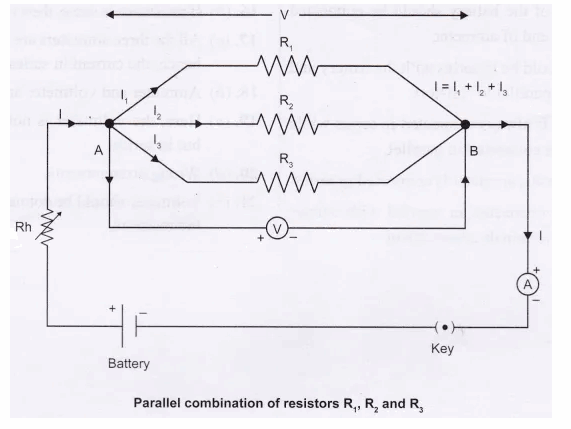When students are studying electrical circuits in secondary school, they are often confronted with the daunting task of calculating resistance in both parallel and series questions. It can be difficult to wrap your head around the various equations and calculations necessary to answer these questions correctly. In this blog post, we will provide an overview of how to calculate resistance in parallel and series questions for secondary school students, simplifying the process so that everyone can better understand it.
Let’s start by looking at what resistance is. Resistance is the opposition of a material or object to the flow of electrons. It is measured in ohms (symbolized as Ω). It is a fundamental concept in electrical circuits and plays a key role in determining the amount of current that flows through the circuit. A higher resistance results in a lower current, while a lower resistance results in a higher current.
Now let’s look at calculating resistance in parallel and series questions. These questions ask you to calculate the total resistance of a circuit based on the individual resistances of each component. In a series circuit, the total resistance is equal to the sum of all the individual resistances. On the other hand, in a parallel circuit, the total resistance is equal to the reciprocal of the sum of the reciprocals of all the individual resistances. To make calculations easier, it is helpful to draw out a circuit diagram and label each component’s resistance. This can help you visualize the different components of the circuit and track the individual resistances.
In addition to understanding the concepts behind calculating resistance, there are also a few tricks that students can use to make the calculation process simpler. One of the best ways to approach these questions is to break them down into smaller parts. This can help reduce the complexity of the problem, making it easier to solve. Additionally, students should try to get familiar with the different equations and formulas that are used to calculate resistance in series and parallel circuits. This can make it easier to work through the calculations.
Calculating resistance in parallel and series questions can be a difficult concept for secondary school students to grasp. However, with the right strategies and tricks, it is possible to understand the concepts and successfully answer these questions. We hope that this blog post has provided some helpful information and tips on how to understand and calculate resistance in parallel and series circuits.

Pdf Resistors In Series And Parallel Shubhakanta Moirangthem Academia Edu

4 Ways To Calculate Total Resistance In Circuits Wikihow

Series Circuits Parallel Networks Questions And Answers Sanfoundry
6 Series Parallel Circuits

Free Ncert Solutions Class 12 Physics Chapter 3 Cur Electricity Pdf

Ncert Class 10 Science Lab Manual Resistors In Parallel Cbse Tuts

Cbse Class 10 Science Important Questions For Chapter 12 Electricity

Ncert Exemplar Class 12 Physics Solutions Chapter 3 Cur Electricity Pdf Is Available Here

Resistors In Series And Parallel Circuit Components S Faqs

Series And Parallel Ap Physics 1

How To Solve Parallel Circuits 10 Steps With Pictures Wikihow
Circuits Worksheet

11 1 Series Circuits And Parallel Siyavula

Physics Tutorial Combination Circuits

Physics For Kids Resistors In Series And Parallel

Analysis Techniques For Series Parallel Resistor Circuits Combination Electronics Textbook

Series And Parallel Circuits Sparkfun Learn
Total Resistance Of A Series Parallel Circuit Practice Problems 2 Wisc Online Oer

Parallel R L And C Reactance Impedance Electronics Textbook

Series And Parallel Circuits Sparkfun Learn

